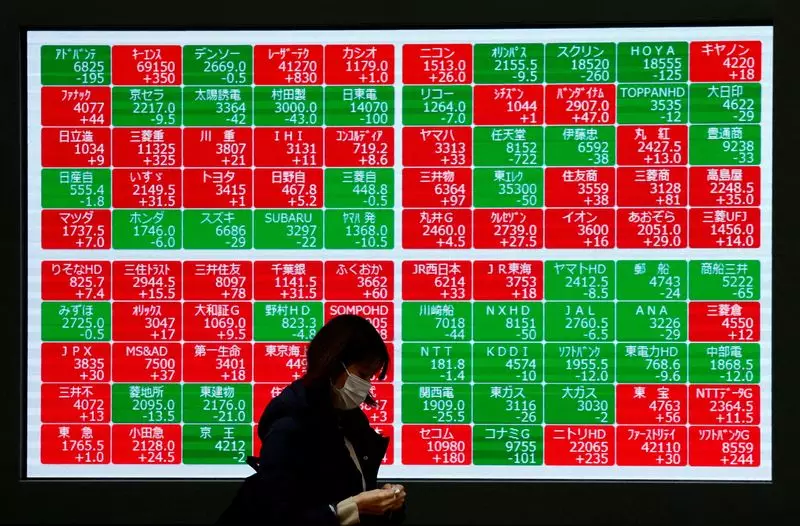As global investors continue to monitor economic data around the world, Asian share markets have seen mild weakening. This shift comes as manufacturing activity in the United States, the world's largest economy, has shown signs of further deterioration. While MSCI's index of Asia-Pacific shares outside Japan experienced a slight decline of 0.1%, it is important to note that the index has still seen an overall increase of 1.6% so far this month.
Australian shares were down by 0.21%, while Japan's Nikkei stock index saw a decline of 0.77%. In contrast, Hong Kong's Hang Seng Index remained relatively flat during early trading, and China's CSI300 Index experienced a decrease of 0.16%. These fluctuations in the market reflect the uncertainty surrounding global economic conditions and their impact on investor sentiment.
The yield on benchmark 10-year Treasury notes reached 4.4001%, compared to the US close of 4.402% on Monday. Additionally, the two-year yield rose to 4.8184% reflecting traders' expectations of higher Fed fund rates. The recent decrease in US Treasury yields, following two consecutive months of declining manufacturing activity, has raised questions about the possibility of future rate cuts by the Federal Reserve.
The market's perception of US economic exceptionalism has started to shift, prompting discussions about the potential implications for monetary policy decisions. As global economic conditions evolve, investors are closely monitoring indicators such as manufacturing activity and interest rates to assess the overall health of the economy. It is essential to consider how these shifts may impact investment decisions and market volatility in the coming months.
In Europe, investors are anticipating a rate cut by the European Central Bank, which could influence global market trends. Meanwhile, in India, the outcome of the recent elections is expected to have a positive effect on financial markets, as Prime Minister Narendra Modi is projected to win a third consecutive term. These geopolitical events can have a significant impact on investor confidence and market performance, highlighting the interconnected nature of the global economy.
The fluctuation in crude oil prices, following OPEC+ production cut decisions, has added another layer of complexity to global market dynamics. Despite expectations for continued production cuts, oil benchmarks reached four-month lows on Monday. This shift underscores the importance of monitoring geopolitical developments and their impact on commodity prices and market sentiment. Additionally, gold prices have remained relatively stable, reflecting ongoing market uncertainties and the demand for safe-haven assets.
The interconnectedness of global economic indicators underscores the need for a comprehensive analysis of market trends and geopolitical events. As investors navigate changing economic landscapes, it is crucial to consider a range of factors that may influence market performance and investment decisions. By staying informed and proactive, market participants can better position themselves to navigate the complexities of today's global economy.

